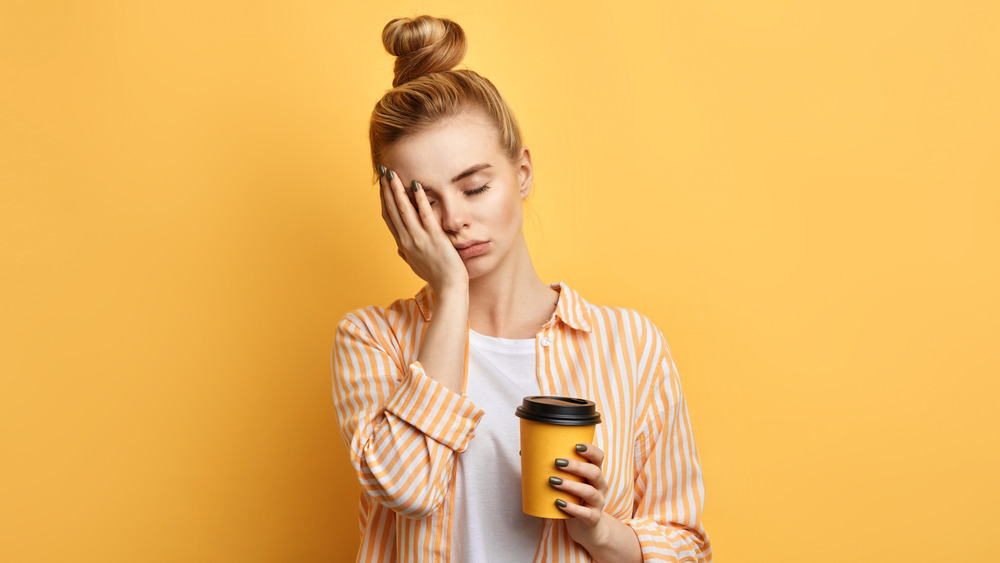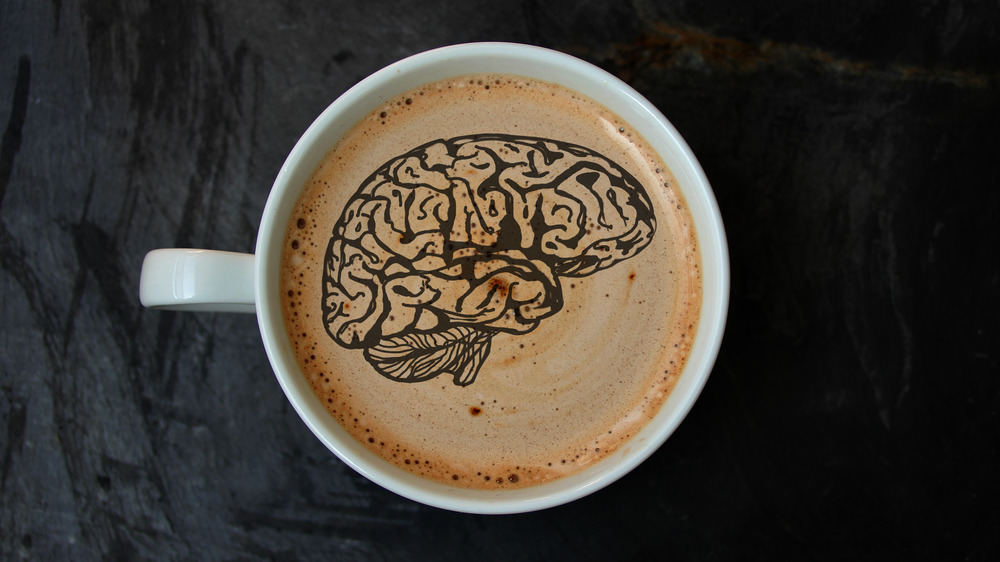Why Too Much Caffeine Can Give You Anxiety
Like so many people around the world, you might start your day with a beverage that contains caffeine. Found in coffee, tea, chocolate, and many soft drinks, caffeine is the most commonly consumed mind-altering drug (via Cambridge University Press). While caffeinated drinks often help with feelings of alertness, they may also be causing symptoms of anxiety.
On average, an eight ounce cup of coffee contains about 100 milligrams of caffeine, while eight ounces of tea only has 50 milligrams. The average adult can consume about 400 milligrams of caffeine without adverse side effects, but every person has a different tolerance (via the U.S. Food and Drug Administration). Even decaf coffee and teas still have small amounts of caffeine. The average cup of decaf coffee contains as much as 12 milligrams of caffeine.
Overconsumption of caffeine can lead to symptoms such as insomnia, an increased heart rate, headaches, and restlessness — and these same symptoms can be found in patients with anxiety disorders.
What caffeine does to your body
Caffeine works by blocking a chemical in your body that makes you feel tired. Your body also releases adrenaline in response to caffeine. Both of these responses make you feel more alert and energetic. Caffeine can also increase the amount of the feel-good chemical dopamine in your brain. But too much dopamine may contribute to feelings of anxiety, and high amounts of caffeine can cause sleep disorders (via Verywell Health). Scientists have observed that consuming too much caffeine can even cause psychosis and mania (via the Journal of Alzheimer's Disease).
Because caffeine is an unregulated drug, it's important to pay attention to how you react to different amounts of it. If you suspect you have a sensitivity to caffeine, you may consider whether its benefits outweigh its drawbacks. If you do choose to stop consuming caffeine, or even cut back on how much you have each day, it's important to remember to do so gradually. Cutting off caffeine "cold turkey" can lead to serious withdrawal symptoms such as irritability, headaches, fatigue, and yes, even anxiety.


